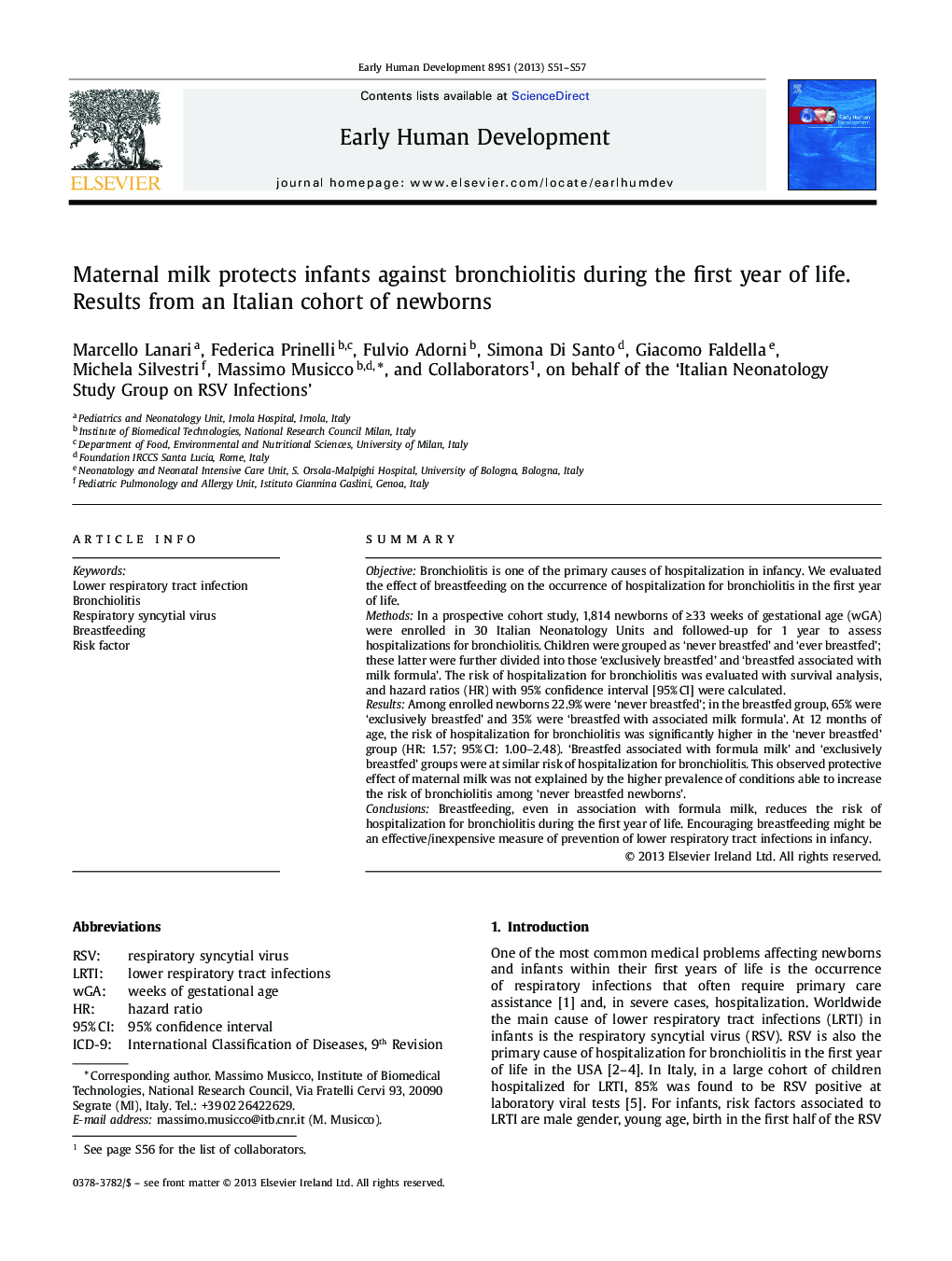| Article ID | Journal | Published Year | Pages | File Type |
|---|---|---|---|---|
| 3916779 | Early Human Development | 2013 | 7 Pages |
SummaryObjectiveBronchiolitis is one of the primary causes of hospitalization in infancy. We evaluated the effect of breastfeeding on the occurrence of hospitalization for bronchiolitis in the first year of life.MethodsIn a prospective cohort study, 1,814 newborns of =33 weeks of gestational age (wGA) were enrolled in 30 Italian Neonatology Units and followed-up for 1 year to assess hospitalizations for bronchiolitis. Children were grouped as ‘never breastfed’ and ‘ever breastfed’; these latter were further divided into those ‘exclusively breastfed’ and ‘breastfed associated with milk formula’. The risk of hospitalization for bronchiolitis was evaluated with survival analysis, and hazard ratios (HR) with 95% confidence interval [95% CI] were calculated.ResultsAmong enrolled newborns 22.9% were ‘never breastfed’; in the breastfed group, 65% were ‘exclusively breastfed’ and 35% were ‘breastfed with associated milk formula’. At 12 months of age, the risk of hospitalization for bronchiolitis was significantly higher in the ‘never breastfed’ group (HR: 1.57; 95% CI: 1.00–2.48). ‘Breastfed associated with formula milk’ and ‘exclusively breastfed’ groups were at similar risk of hospitalization for bronchiolitis. This observed protective effect of maternal milk was not explained by the higher prevalence of conditions able to increase the risk of bronchiolitis among ‘never breastfed newborns’.ConclusionsBreastfeeding, even in association with formula milk, reduces the risk of hospitalization for bronchiolitis during the first year of life. Encouraging breastfeeding might be an effective/inexpensive measure of prevention of lower respiratory tract infections in infancy.
